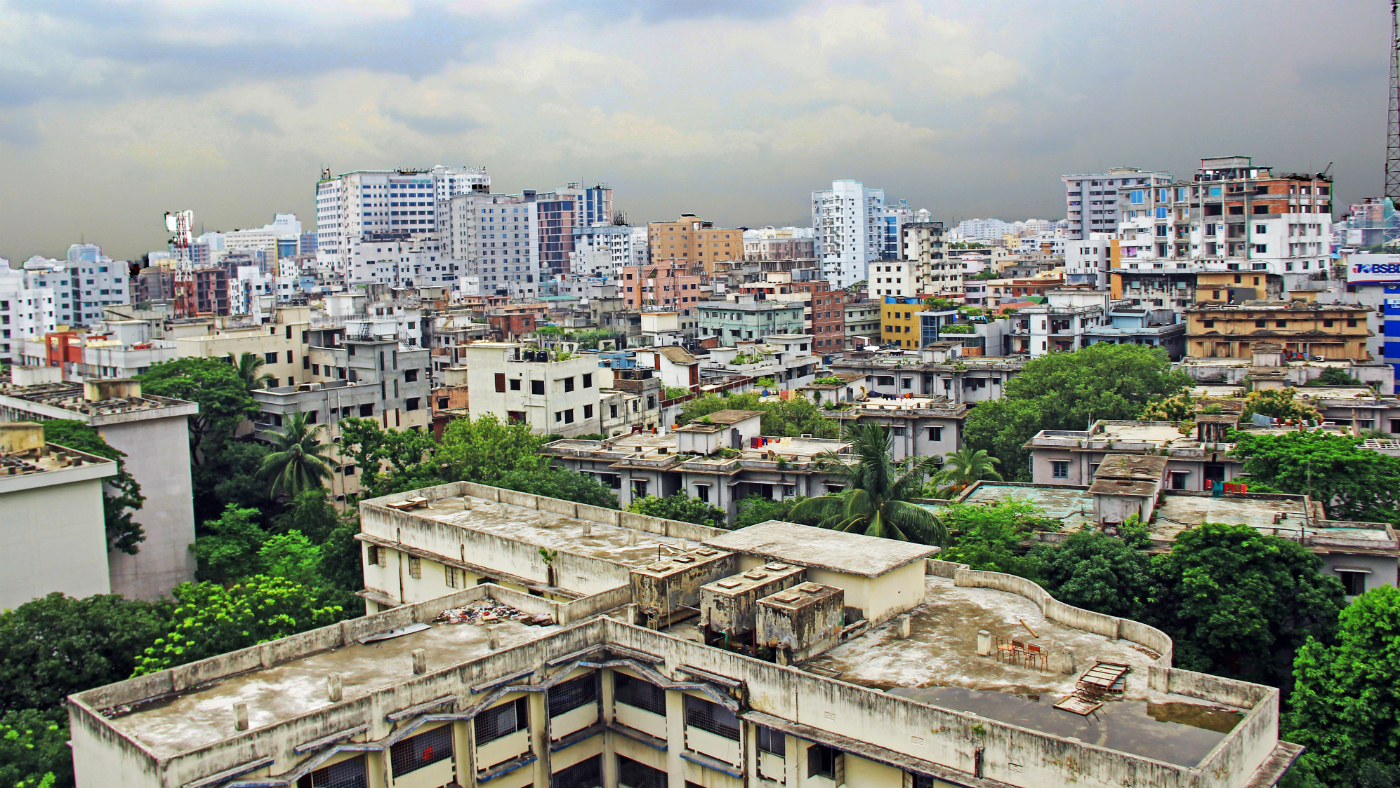New York attack: does Bangladesh have a terrorism problem?
City authorities are investigating suspect Akayed Ullah’s family and upbringing in the South Asian country

A free daily email with the biggest news stories of the day – and the best features from TheWeek.com
You are now subscribed
Your newsletter sign-up was successful
US investigators are piecing together a biography of suspected New York attacker Akayed Ullah, digging into his former life in Bangladesh and his more recent years as a limousine driver and electrician in Brooklyn.
The 27-year-old immigrant is suspected of trying to blow himself up at New York’s main bus terminal “in retaliation for US attacks on so-called Islamic State”, says the BBC. But investigators will want to know what led to the bombing, and who - if anyone - might have assisted the suspect.
Ullah relocated to the US from Chittagong, a coastal city in southeast Bangladesh, in 2011, CBS News reports, along with his parents and siblings, entering on an immigrant visa. Just over a year later, he obtained a livery licence, permitting him to drive for-hire vehicles, although this lapsed in March 2015. He is then believed to have begun working at a relative’s electrical company, says The Sun.
The Week
Escape your echo chamber. Get the facts behind the news, plus analysis from multiple perspectives.

Sign up for The Week's Free Newsletters
From our morning news briefing to a weekly Good News Newsletter, get the best of The Week delivered directly to your inbox.
From our morning news briefing to a weekly Good News Newsletter, get the best of The Week delivered directly to your inbox.
Ullah is believed to have travelled to Bangladesh in September, returning a month later, CBS says. Before that, he reportedly visited the United Arab Emirates (UAE).
While UAE nationals have been linked to terrorist attacks including 9/11, Bangladesh is “often overlooked by analysts”, says The Guardian, even though the poverty-stricken Muslim-majority nation has experienced “an acute intensification of jihadist activity in recent years”.
In July 2016, at least 20 people - mostly non-Muslim foreigners from Italy and the US - were hacked to death in a bakery in the Bangladeshi capital, Dhaka. Isis claimed responsibility, although the government blamed Jamaat-ul-Mujahideen, a Bangladeshi Islamic group, Foreign Affairs reports.
Dhaka insisted, controversially, that Isis had no presence in Bangladesh, The Diplomat says, although images released on the internet showed the attackers – all men in their 20s – posing with the Islamic State black flag.
A free daily email with the biggest news stories of the day – and the best features from TheWeek.com
Several other terrorist attacks preceeded and followed the bakery massacre. In early 2017, there were three botched suicide bombings in and around Dhaka, following which army commandos killed four suspects after a prolonged battle, the BBC says. Seven to eight people were later found blown up in neighbouring Moulvibazar.
Although Bangladesh condemned yesterday’s New York attack, the source of Dhaka’s problem is not just the threat of terrorism, says Forbes. The problem has also been a government living in a state of denial.
-
 How the FCC’s ‘equal time’ rule works
How the FCC’s ‘equal time’ rule worksIn the Spotlight The law is at the heart of the Colbert-CBS conflict
-
 What is the endgame in the DHS shutdown?
What is the endgame in the DHS shutdown?Today’s Big Question Democrats want to rein in ICE’s immigration crackdown
-
 ‘Poor time management isn’t just an inconvenience’
‘Poor time management isn’t just an inconvenience’Instant Opinion Opinion, comment and editorials of the day
-
 Key Bangladesh election returns old guard to power
Key Bangladesh election returns old guard to powerSpeed Read The Bangladesh Nationalist Party claimed a decisive victory
-
 Epstein files topple law CEO, roil UK government
Epstein files topple law CEO, roil UK governmentSpeed Read Peter Mandelson, Britain’s former ambassador to the US, is caught up in the scandal
-
 Iran and US prepare to meet after skirmishes
Iran and US prepare to meet after skirmishesSpeed Read The incident comes amid heightened tensions in the Middle East
-
 Israel retrieves final hostage’s body from Gaza
Israel retrieves final hostage’s body from GazaSpeed Read The 24-year-old police officer was killed during the initial Hamas attack
-
 China’s Xi targets top general in growing purge
China’s Xi targets top general in growing purgeSpeed Read Zhang Youxia is being investigated over ‘grave violations’ of the law
-
 Panama and Canada are negotiating over a crucial copper mine
Panama and Canada are negotiating over a crucial copper mineIn the Spotlight Panama is set to make a final decision on the mine this summer
-
 Why Greenland’s natural resources are nearly impossible to mine
Why Greenland’s natural resources are nearly impossible to mineThe Explainer The country’s natural landscape makes the task extremely difficult
-
 Iran cuts internet as protests escalate
Iran cuts internet as protests escalateSpeed Reada Government buildings across the country have been set on fire